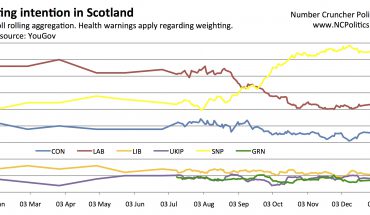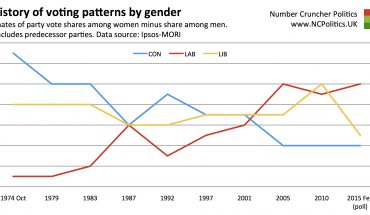
As pollsters, academics and number crunchers work to unravel the causes of the polling debacle, one problem for many of us has been having a lack of individual-level data to hand. But now the BES recontact survey is out, accompanied by a very swift paper and blog post by Chris Prosser and John Mellon of the BES team concerning the causes.
I’m going to hold off putting my thoughts on record until I’ve had chance to discuss them with the authors, but one thing is clear from their findings – we’re a nation of fibbers. Not everyone is convinced that people lied about how they were voting, but some people were definitely telling porkies about whether they were voting at all.
It’s been noted that the very high implied turnout figures (91% in the BES megapoll) have been a concern for some time, but it was also thought previously that much of the difference compared with the actual turnout of 66% was down to another familiar concern – unrepresentative samples. About 5 points of the turnout discrepancy can indeed probably be explained by poll respondents being more politically engaged than the wider electorate. But the other 20 points look like people straight-up lying.
What the BES team did was to ask people whether they voted in local elections, then matched their addresses to the council wards where local elections were being held. It turns out that 20% of people in areas with no local election this year claimed to have voted in one! If all of these people are reallocated to “did not vote” in the general election, turnout drops to a far less exaggerated 71%.
It’s less clear how much of an impact this had on the all-important topline voting intention figures. Among those who appear to have lied, Labour had a 6.3 point lead over the Conservatives. But among voters in the same areas that knew there was no local election there, Labour had a pretty similar 5.1 point lead (those areas were Scotland, Wales and London, plus a tiny number of English shires). On that basis, the effect appears small, although Mellon and Prosser argue that there is other evidence to suggest it may be bigger in reality.
I’ll have more to say on this in the near future.
20 percent of British people are liars
|
16th July 2015 |




